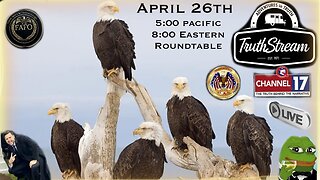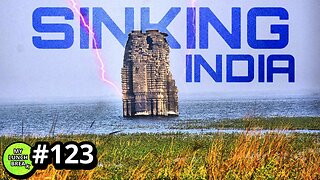Premium Only Content

Darwin's Dangerous Idea by Daniel C. Dennett | Summary
Buy Here: https://amzn.to/45yoWE4
""Darwin's Dangerous Idea: Evolution and the Meanings of Life"" is a nonfiction book written by philosopher and cognitive scientist Daniel C. Dennett, published in 1995. In this book, Dennett explores the far-reaching implications of Charles Darwin's theory of evolution by natural selection, challenging traditional views of biology, philosophy, and the nature of consciousness.
Key points covered in the book include:
1. **Natural Selection as a Universal Acid:** Dennett introduces the concept of natural selection as a ""universal acid"" that has the power to dissolve traditional explanations and reshape our understanding of life, morality, and the human mind.
2. **Algorithmic Nature of Evolution:** The author argues that evolution by natural selection operates as an algorithmic process that can create complexity and diversity from simple beginnings. He explains how this process can explain the emergence of life's complexity without invoking supernatural explanations.
3. **Intentionality in Evolution:** Dennett addresses the apparent intentionality in biological systems and argues that natural selection can account for the appearance of design without the need for a conscious designer. He discusses how complex adaptations can emerge through gradual, step-by-step processes.
4. **Consciousness and Evolution:** The book explores the evolution of consciousness and the mind. Dennett suggests that the human mind, including our subjective experiences and sense of self, can be explained by the gradual accumulation of simpler mental processes over time.
5. **Memetics and Cultural Evolution:** Dennett introduces the concept of ""memes,"" ideas or cultural units that spread and evolve through imitation. He discusses how memetics can provide insights into the evolution of cultural phenomena, including religion, language, and art.
6. **The Tree of Life and Common Descent:** The author examines the evidence for common descent and the evolutionary relationships among species. He discusses the structure of the tree of life and the ways in which species are connected through shared ancestry.
7. **The Role of Chance and Necessity:** Dennett considers the interplay between chance and necessity in evolution. He discusses the role of random mutations and environmental factors in shaping the course of evolution.
8. **Evolutionary Explanations of Morality and Ethics:** The book explores the possibility of explaining human morality and ethics through an evolutionary lens. Dennett discusses how moral values and norms can emerge from interactions between individuals and societies.
9. **Impact on Religion and Philosophy:** The author addresses the potential conflict between evolutionary theory and religious beliefs, particularly creationism. He also reflects on the broader implications of natural selection for philosophy and our understanding of reality.
""Darwin's Dangerous Idea"" offers readers a thought-provoking exploration of the revolutionary impact of Darwin's theory of evolution. Dennett's work challenges readers to consider the profound implications of evolution for our understanding of biology, consciousness, culture, and the nature of existence. The book invites readers to engage with the intersection of science, philosophy, and the big questions about life's origins and meanings."
-
 4:17:17
4:17:17
VapinGamers
13 hours ago $7.39 earned📣 Fortnite Family Night! - Games and Dubs with BrianZGame - !rumbot
70.7K5 -
 4:27:48
4:27:48
ThePope_Live
11 hours agoLIVE - First time playing The Finals in over a YEAR! Still good? with @Arrowthorn
53.3K1 -
 3:06:26
3:06:26
TruthStream with Joe and Scott
17 hours agoRoundtable with Patriot Underground and News Treason Live 4/26 5pm pacific 8pm Eastern
85.6K42 -
 8:52
8:52
Tundra Tactical
15 hours ago $11.14 earnedSCOTUS Denies Appeal, Minnesota Courts Deal 2a Win!
74.3K14 -
 10:36:01
10:36:01
a12cat34dog
17 hours agoONE WITH THE DARK & SHADOWS :: The Elder Scrolls IV: Oblivion Remastered :: FIRST-TIME PLAYING {18+}
96.7K7 -
 22:27
22:27
Exploring With Nug
1 day ago $13.52 earnedSwamp Yields a Chilling Discovery in 40-Year Search for Missing Man!
80.2K29 -
 1:23:26
1:23:26
RiftTV/Slightly Offensive
18 hours ago $12.66 earnedThe LUCRATIVE Side of Programming and the SECRETS of the "Tech Right" | Guest: Hunter Isaacson
82.8K38 -
 27:57
27:57
MYLUNCHBREAK CHANNEL PAGE
1 day agoDams Destroyed India
83.3K31 -
 11:42:02
11:42:02
Phyxicx
19 hours agoLast minute practice before Sunday - 4/26/2025
60.8K3 -
 LIVE
LIVE
The Official Steve Harvey
10 days ago $5.25 earned24 HOURS OF MOTIVATION w/ STEVE HARVEY
25 watching